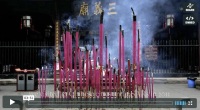BRICS Meet: China and its collective of rising powers on consensus building toward the “Delhi Declaration”.
And…from the India Express (March 30, 2012) Delhi declaration: Talks only solution to resolve India, Syria issues – “Concerned about the situation in West Asia due to Iran’s nuclear programme and Syria’s internal affairs, India, China, Russia, Brazil and South Africa on Thursday agreed that the issues in these countries should be resolved only through dialogue.”
– – –
BRICS seek unity, influence at New Delhi summit
Xinhua, AFP
Source – Global Times, published March 28, 2012
The leaders of BRICS countries gather in New Delhi Thursday for their fourth summit, and they will also hold private talks, with the emerging market bloc struggling to convert its growing economic strength into collective diplomatic clout.
These will conclude with a “Delhi Declaration,” which will summarize the consensus of their views and could include a statement on the bloodshed in Syria, the Iranian nuclear crisis or Europe’s debt problems.
Zhang Yan, Chinese Ambassador to India, said the leaders of China, Brazil, Russia, India and South Africa would have in-depth discussions on global economic management, sustainable development and cooperation among the five BRICS countries with the theme “Partnership for Stability, Security and Prosperity.”
China regards this summit as a new opportunity for BRICS countries to reach consensus and deepen cooperation among BRICS countries to deliver a message of confidence to the world economy, provide dynamics to strengthen global economic management, and contribute more to the global economic recovery, Zhang said.
Filed under: Beijing Consensus, Brazil, Charm Offensive, Chinese Model, global times, Government & Policy, India, Influence, International Relations, Peaceful Development, Politics, Public Diplomacy, Russia, Soft Power, Strategy, The Chinese Identity, The construction of Chinese and Non-Chinese identities












The Sharing Circle